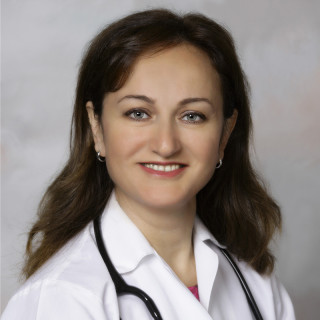
There is ample scientific evidence which shows that breastfeeding is beneficial for the infants and mothers. Physician mothers were shown to have great breastfeeding initiation rates but they are at high risk of cessation of breastfeeding prematurely. This is mainly attributed to work-related reasons. I can certainly relate to that, as a mom of three children, all of whom I breastfed, I learned the hard way that breastfeeding can be very difficult for the working physician mom. The work environment in healthcare is certainly not built for breastfeeding moms. Physicians don’t practice what they preach, while they encourage new moms to nurse their newborn babies, ironically, physicians who are moms themselves have to overcome so many difficulties at work to be able to breastfeed their own infants.
I was lucky enough to be able to continue to breastfeed each of my babies for one year. Establishing the nursing routine in the short time I was off from work after having babies was challenging. Being able to pump breast milk at work required due diligence and planning long before my deliveries. I prepared by reading everything about nursing, attending breastfeeding classes, getting the best pumping equipment to get maximum yield in minimum time. Having an up front discussion with my employers and letting them know that I was planning to pump milk after returning to work helped prepare the work environment ahead of time and reduce the stress of unknown after returning to work.
I had different employers with each of my first two children. These were both outpatient clinics. I was able to take twelve weeks of leave with my first child and ten weeks with the second. Before returning to work, I negotiated with the administrations to allow me to have a 15-minute protected time in the morning and another one in the afternoon in between patient visits. On both occasions, I was lucky to have a private office space where I could close the door while I was pumping milk. The staff would know I was pumping and they would not disturb me. I continued to work on the computer and use the phone during the pumping sessions with the awkward whirring sound of the pump in the background. There was no sink or a refrigerator to store the pumped milk in the offices but making sure to wash my hands before and after pumping, cleaning the pieces of the pump with wipes, storing the milk in a cooler with an ice pack became automatic very quickly. My productivity was not affected as I could always add walk-in patients to my schedules if needed and I was able to use the pumping sessions as administrative time to work on patient charts or make calls.
With my last child, it was much more difficult to establish a breastfeeding routine after six weeks of maternity leave. I was part of a busy practice, I was rounding in seven hospitals and also seeing patients in the office. I had a long commute to and from work. Still, I was determined to breastfeed. Weeks before having my baby I inquired each hospital about accommodations for breastfeeding moms. Every place was very different, some already prepared with a lactation room, some are willing to accommodate although not previously prepared, some are completely oblivious and not very willing to accommodate. One hospital had a dedicated lactation room that had a chair and a bathroom. Occasionally I would have to wait for another fellow nursing physician mom to finish her business, but in time, we learned to arrange our pumping times such that we would not coincide with each other. One hospital gave me the keys to a very small room slightly bigger than a closet. There was only a desk and a chair and some stored Christmas decorations. There was no sink. Another hospital let me pump in their maternity ward lactation room. One hospital gave me the key to a storage room. Once again, there was no sink. In others where there were no dedicated places for a physician mom to pump milk, some let me use an empty conference room but there were times when I pumped in the bathroom or in my car. I had become a professional pumper. I was on auto-pilot, I would finish a pumping session before you could say "breast milk."
I would store the breast milk in the cooler inside the unassuming, black bag that also carried the pump. The bag could easily be tucked away in the physician’s lounge, office, or in the car.
This whole ordeal was certainly exhausting … But seeing my thirty-seven-weeker, five-pounder, fragile baby thrive every day was well worth the hassle.
And my productivity did not suffer. I was happy to be able to continue to breastfeed my baby, and I worked very hard to make sure that I took good care of my patients.
I feel that it is important to share my experience with other physician moms or moms-to-be. I know that the concern about nursing after returning to work can cause tremendous anxiety and frustration. Unfortunately there are many obstacles in the way physician moms to continue to breastfeed after returning to work; inadequate or non-existent maternity leave, lack of support among employers and colleagues, difficulty of accommodating protected time to express milk, lack of appropriate space to pump milk, lack of sanitary storage for breast milk, and lack of child care at work place — just to name a few. Only twenty-nine states, Puerto Rico and District of Columbia have laws related to breastfeeding at work.
Those of us who have been through such experiences should spread the word that it is possible to breastfeed and work as a physician mom. We need to support each other and advocate for removing the obstacles to breastfeed at work. At each opportunity, we should educate our employers and male and female colleagues to raise awareness. I think that keeping physician moms and families happy in this regard is a great way to improve physician wellbeing and avoid burn out.
If you have any questions about breastfeeding at work, ask me in the comments below!
Gul Madison, M.D. is an Infectious Diseases specialist in Philadelphia. She is a mother of three children. She is a 2018–2019 Doximity Author.






